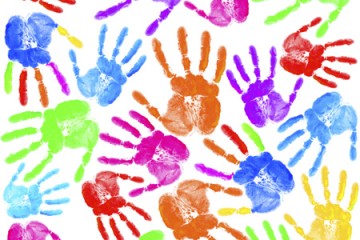Think of kindergarten as the start of a line of dominoes.

Image caption: Deborah Gross
If a child begins this first stage of schooling already lagging behind socially, that can predict a pattern of setbacks in their future education, according to new research from the Johns Hopkins School of Nursing.
The study, focusing on Baltimore City Public Schools, found that students entering kindergarten who were behind in their social-behavioral development were far more likely to be held back, suspended, or expelled in the future. They were also far more likely to require specialized educational support.
The Hopkins researchers—Deborah Gross, Amie Bettencourt, and Grace Ho—say their findings highlight the urgent need for cities such as Baltimore to direct more resources at early childhood development.
"These results are important," Gross says. "They show how critical social and behavioral skills are for learning, how early the struggle begins for young children, and how important it is to address the problem of social-behavioral readiness well before children enter kindergarten."
The study followed 9,000 elementary school students in Baltimore, finding that children who were considered socially and behaviorally "not ready" for kindergarten faced discouraging outcomes by the time they reached fourth grade. Those students were up to 80 percent more likely to be held back a grade level and to receive extra educational supports, like services for disabilities. They were also up to seven times more likely to be suspended or expelled at least once.
Researchers found that boys were especially vulnerable to these academic difficulties.
Ho notes that chronic stress, poverty, or trauma can affect trajectories for students.
"More than 30 percent of Baltimore City children are exposed to such [experiences], and it directly impacts their ability to manage emotions, focus attention, and process information," she says.
In addition to individual children confronting social-behavioral issues, the researchers emphasize that a lack of kindergarten readiness has a broader societal toll, including added expenses for special education and the juvenile justice system. They recommend comprehensive strategies for schools and cities to improve early childhood programming and provide stronger supports for parents and teachers.
"These programs may be costly," says Bettencourt, "but not addressing the problem of readiness to learn will cost more in the long run."
The study, conducted in collaboration with the Baltimore Education Research Consortium, is part of the ChiPP Project, a local initiative to improve parenting skills for families with pre-kindergarteners.
Read more from School of NursingPosted in Politics+Society
Tagged education, child development








